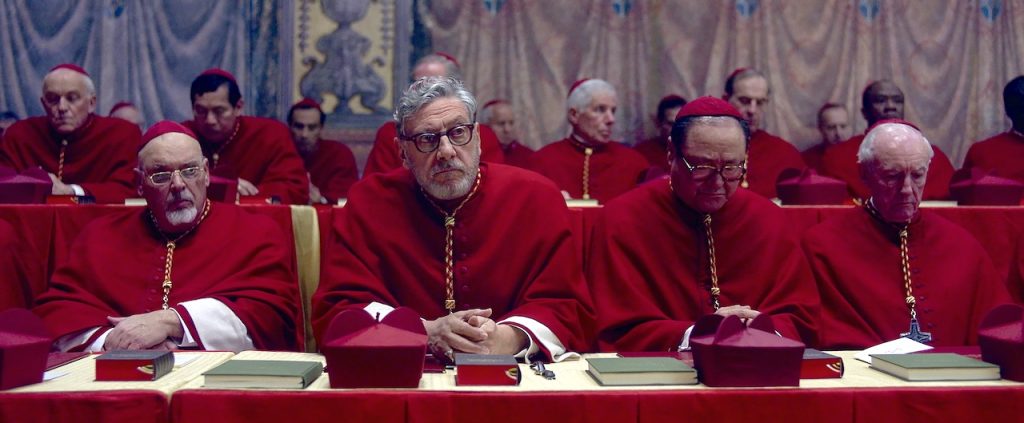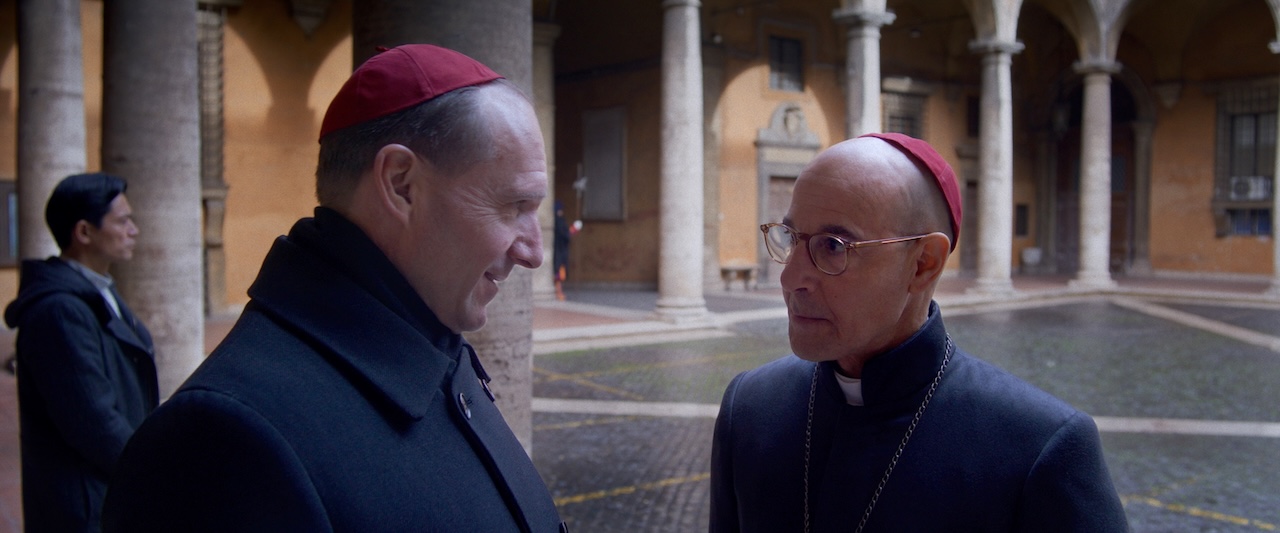German-born director Edward Berger (All Quiet On The Western Front, Your Honor) was always attracted to the thriller aspect of Conclave starring Ralph Fiennes, Stanley Tucci, John Lithgow and Isabella Rossellini. But the real drawcard was diving into a world he (and most people) know very little about. “I felt this is an opportunity to create sort of an Alan J. Pakula (The Pelican Brief, All The President’s Men) political conspiracy thriller,” he mentions.
His other key consideration in Conclave was “finding the character” of Cardinal Lawrence (Ralph Fiennes) who is charged with holding an election for a new pope.

Edward Berger
“What interested me most, is that journey of liberation, of having this weight on your shoulder, of not knowing… the feeling of having all the responsibility and not knowing if you’re in the right place, if you’re doing a good job, or if you are even in the right job,” he elaborates.
Constructing The Political Thriller
Navigating the pace, mood, tone and rhythm of Conclave relies on specific tropes of the genre. Berger concedes that Conclave “was a difficult movie to find.” Despite the established twists and turns that typify the genre, Berger deliberately made the pace of his film precise, slow, and contemplative.
He references Bellini’s (Stanley Tucci) dialogue about the process of electing a new pope being like a game of chess.
I wanted to evoke this feeling of mystery, paranoia, claustrophobia, and heaviness
Edward Berger developed the screenplay with producer Tessa Ross and screenwriter Peter Straughan. They worked on the script for a long time to ensure it was as tight as possible before circulating to talent. This ensured that each actor was clear with their characters with little need for improvisation.
Although there is only one credited writer, the team discussed the screenplay throughout production. They tailored configured Lawrence’s character arc and tried to “put the audience into his shoes and the story.”
The actors in Conclave excel in their ability to emote so audiences understand what they might be thinking and feeling without any dialogue.
The camera was placed behind Lawrence’s eyes so the audience can follow what he feels in “his stomach. The camera represents his emotional state. That was my guiding light,” shares Berger.
This Papal Election Is A War
An underlying theme in Conclave tracks the escalating strife between the sparring cardinal fronts while electing a new pope. This sentiment is verbalized in a conversation between Cardinals Bellini and Lawrence.
“I think this is what this movie is really about; a subtle war behind between all the political factions that tear us apart today. This movie has left versus right, up, down, north, south, rich, and poor,” notes Berger.

Cardinal Tedesco (Sergio Castellitto) center. Photo courtesy of Focus Features
The emotional core of the movie lies in testing the friendship between Bellini and Lawrence. Cardinal Lawrence eventually rebels against the Vatican by pitting other cardinals against Bellini as the Vatican secrets are revealed.
Another point that Conclave illustrates that cardinals are mere mortals. “There’s nothing divine about them. That’s why we wanted to pull the entire film down the earth. Everyone has sins, lies, mistakes, problems, and doubts. That’s why we added all these modern things like cigarettes and cell phones. I wanted to make the cardinals just like you and I,” concludes Berger.
